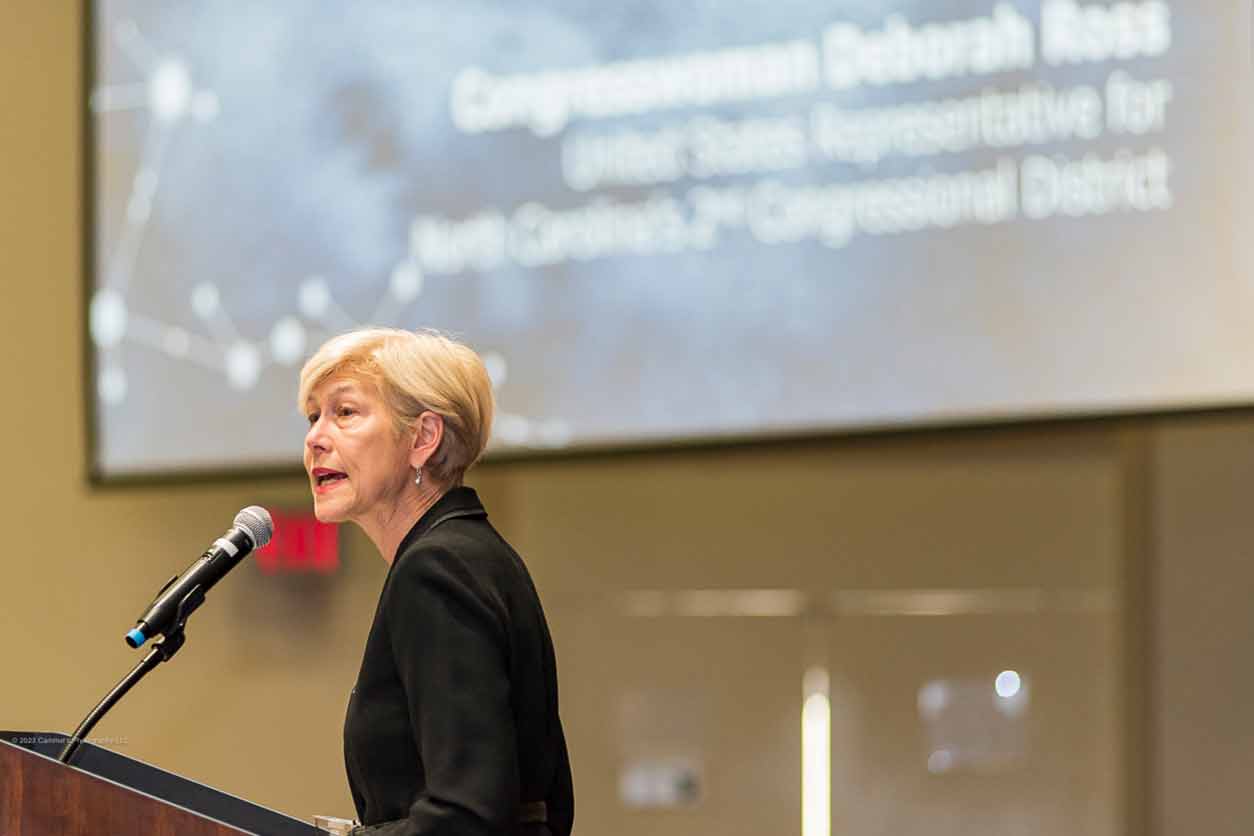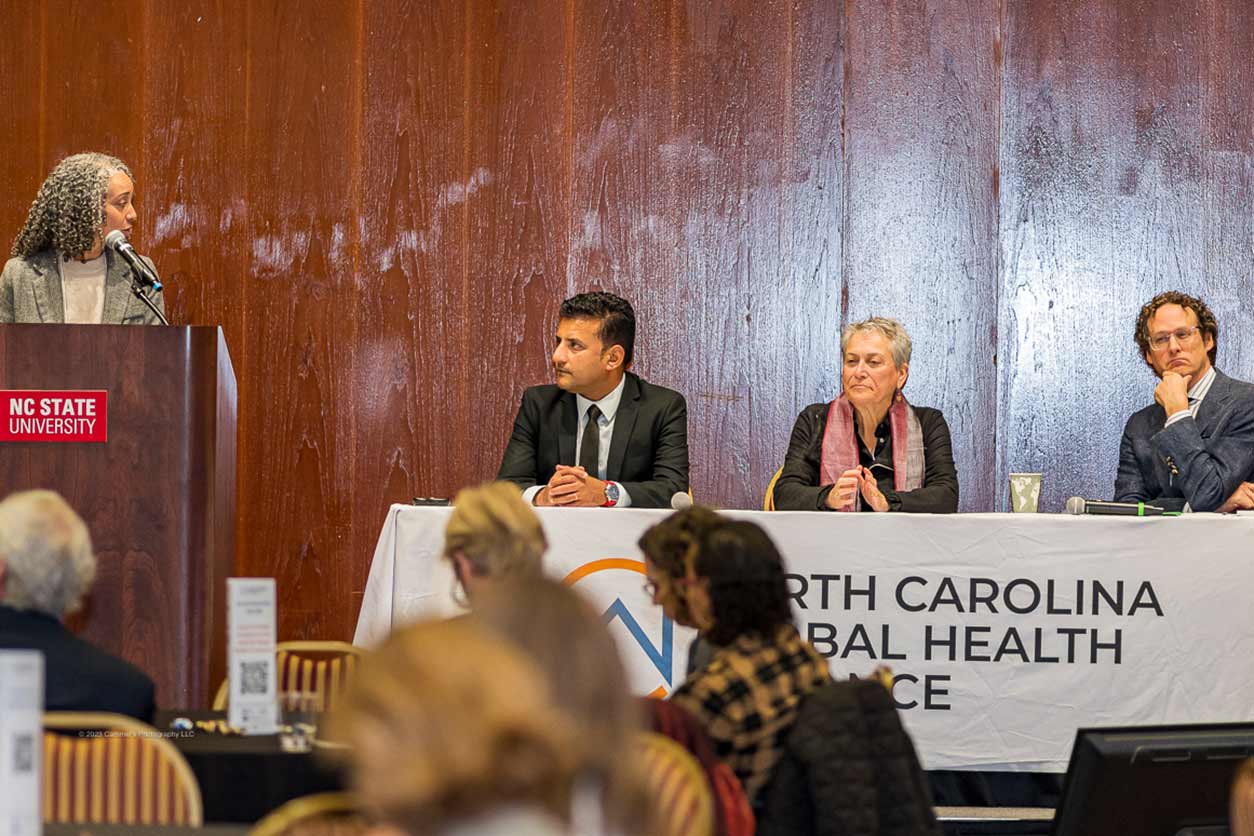Resilience is often defined as the capacity to withstand or recover quickly from difficult situations. But what does resilience mean in the context of global health? That was the key question posed at the North Carolina Global Health Alliance's 10th Annual Conference held Nov. 1 at North Carolina State University (NCSU). NIEHS co-sponsored the conference.
The event brought together more than 200 leaders and visionaries from academia, industry, government, and philanthropy to explore how to create a global health ecosystem that can successfully adapt to various public health threats, such as pandemics, climate change, natural disasters, and conflicts.
“These conversations are critical,” said keynote speaker U.S. Rep. Deborah Ross, J.D., who serves as the Ranking Member of the Subcommittee on Environment for the House Science, Space, and Technology Committee. “They are part of our collective responsibility to improve local public health now and for future generations.”

The theme
In selecting a theme for this year’s conference, organizers thought about the individual and collective trauma of the COVID-19 pandemic. They reflected on the ways in which lives were upended and health inequities were intensified.
“But we also reflected on the beautiful things, the ways in which we adapted, how we changed the way we think about work, about balance, about mental health,” said planning committee member Rachel Clad, director of market development at the BroadReach Group. “There is beauty in adaptation; there is power in resilience.”
Clad moderated a plenary panel discussion on resilience in the global health ecosystem that drew perspectives from the One Health approach, environmental health, and health policy.

The environment
Global health researchers do not always consider the impact of environmental factors such as air pollution, chemicals in the environment, metals in the water supply, agricultural practices, and occupational hazards, said plenary panelist Gwen Collman, Ph.D., Director of the NIEHS Office of Scientific Coordination, Planning, and Evaluation.
“We're trying to promote the inclusion of these factors in the overall understanding of disease risks and health threats across the world,” she said. Collman serves as a Strategic Advisor for the NIH Climate Change and Health Initiative.
In 2023, Congress provided $40 million in funding to support the initiative and launch transdisciplinary research centers focused on climate change and health across the U.S. and around the world. The Boston University School of Public Health and Harvard T.H. Chan School of Public Health were recently awarded a grant to serve as the research coordinating center for the NIH-wide effort to reduce the health impacts of climate change “We are not only interested in documenting these health effects, but we are also interested in interventions or solutions,” said Collman.
To that end, the initiative is collecting case studies from researchers in lower middle income countries around the world on adaptation strategies that respond to the impact of climate change on public health. The collection will help to identify research priorities and future needs in this area.
The subthemes
Conference organizers, led by North Carolina Global Health Alliance Executive Director Brianna Clarke-Schwelm, identified the following three subthemes for the conference.
- Expanding Global Health Partnerships: Global health has expanded to include a broader, more diverse range of partners. Who else needs to be included at this new global health table? How can these new and old partners better work together?
- Adapting the Way Researchers Work: The workplace is different than it was five years ago — and so are workers. How have global health researchers adapted to this new environment? What is working and what is not?
- Deepening Community Relationships: Locally led and inclusive development, known as localization, faces countless challenges. How do researchers overcome these challenges for a more equitable, collaborative, and sustainable approach to global health?
Together, the subthemes helped underscore how attendees could strengthen resilience through the choices they make as individuals and as a community.
(Marla Broadfoot, Ph.D., is a contract writer for the NIEHS Office of Communications and Public Liaison.)









